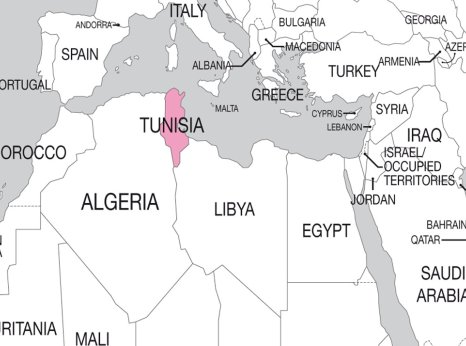Tunisia: Opposition Figure Handed Two Year Sentence

Abir Moussi, 48, is a lawyer and president of the Free Destourian Party (PDL), known for her vocal opposition to President Kais Saied. She served in Parliament from 2019 to 2021. On 5 August 2024, the Tunis Court of First Instance sentenced her to two years in prison under Decree-Law 54 for criticising the legislative elections, following a complaint by the ISIE. On 3 October 2023, shortly after expressing interest in the presidential race, Abir Moussi was arrested by security forces while trying to submit an appeal against presidential decrees at an office near the Presidential Palace in Carthage. Prevented from filing the appeal, she protested by staying outside the building and live streaming the events on Facebook. According to eyewitnesses and her lawyers, security forces violently arrested Abir Moussi and held her in an undisclosed location for two hours before her legal team found her at a police station in La Goulette, Tunis. After 48 hours in custody, they were informed of her pre-trial detention. Additionally, police ignored her requests for necessary medication, leading to health complications that later required hospitalization.
On 5 October, an investigative judge interrogated Abir Moussi at the Tunis Court of First Instance and ordered her pre-trial detention under charges of seeking to “change the form of government”, "inciting violence on the Tunisian territory” and “attack with the aim of provoking disorder” under Article 72 of the Penal Code, and “processing of personal data without the consent of the data subject” and “interference with the freedom to work” under Articles 27 and article 87 of the Data Protection Law and article 136 of the penal code respectively. On 30 January, the investigative judge decided to drop the charges under Article 72 but kept Abir Moussi in pre-trial detention under the two other charges. However, the prosecution appealed the judge’s decision. The charges are being re-examined.
Between December 2022 and March 2023, the Independent High Authority for Elections (ISIE) filed four complaints against Abir Moussi with the Tunis general prosecutor under Decree law 54. The complaints, based on Abir Moussi’s critical statements about ISIE’s handling of elections, accuse ISIE of election rigging. Abir Moussi’s lawyers argue that the four complaints should have been consolidated into a single investigation as required by law but are instead being handled separately by different judges.
On 5 July 2024, an investigative judge questioned Abir Moussi over complaints by the ISIE regarding her statements from November 2022 and January 2023, where she alleged that legislative elections were "rigged” and the number of elected deputies was incomplete. The judge ordered her pre-trial detention and referred her to trial under article 24 of Decree law 54 for “deliberately using information and communication networks and systems to produce, promote, publish, transmit or prepare false news, statements, rumours or documents that are artificial, falsely attributed to others with the aim of attacking the rights of others, harming public security or national defence, or spreading terror among the population.” On 5 August 2024, Abir Moussi appeared for trial, where her defence team's requests for postponement and provisional release were denied. The court convicted her to two years in prison, violating her right to a fair trial and freedom of expression.
Abir Moussi faces criminal charges under Articles 15, 245, 220 and 306 of the Penal Code, following a complaint by the International Union of Muslim Scholars on 10 May 2022, after two protests outside their Tunis office. The complaint includes charges of property damage, theft, defamation, spreading false news and public intimidation. Abir Moussi was questioned by an investigative judge on 12 June 2024. According to international human rights law, defamation should be handled as a civil matter, not criminal, and should never result in imprisonment. Public officials seeking redress for defamation should do so in civil, not criminal, courts.
On 25 July 2021, President Saied claimed emergency powers that he said were granted to him by Tunisia's 2014 Constitution. Since February 2023, the Human Rights situation in Tunisia has been rapidly deteriorating as several opposition figures have been targeted. Authorities opened criminal investigations against at least 74 opposition figures and other perceived enemies of the president, including at least 44 people accused of crimes in connection with the peaceful exercise of their human rights. This crackdown on opposition threatens human rights including the rights to freedom of expression, association and peaceful assembly in Tunisia, rights protected under Articles 19, 21 and 22 of the International Covenant on Civil and Political Rights and Articles 9, 10 and 11 of the African Charter on Human and Peoples’ Rights to which Tunisia is a state party.